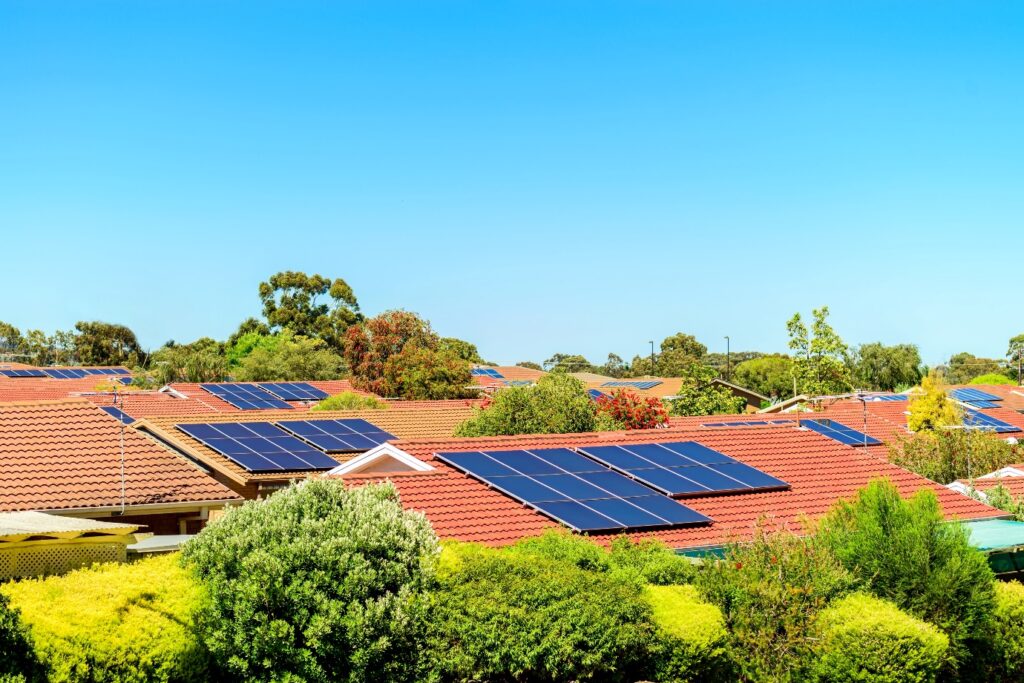How many solar panels does an average sized house need? How many solar panels are required for a 1000 sq ft. home and how to find the right solar panel capacity? These are some common questions that every aspiring solar panel homeowner has in mind.
Determining the number of solar panels and the suitable solar panel capacity required for your home first needs an understanding of your goals. These goals can be reducing your carbon footprint, maximizing the return on investment, and saving as much money as possible without an impact on the environment.

For residences, one solar panel capacity ranges between 1Kw and 10Kw. To find the suitable solar panel capacity as per requirement, it is essential to know:
- The energy usage in Watts
- The average need for energy
- The amount of sunlight and climate in your area
- The number of hours of sunlight you expect in your area
The hours of sunlight in your location directly impacts the energy you expect the solar system in your home to produce and the number of solar panels you need. If you live in an area with sufficient hours of sunlight, then you are good to go!
However, even if you live in an area with comparatively lesser hours of sunlight, you will have to install more solar panels with the appropriate solar panel capacity for sufficient output.
Solar Panel Output Efficiency
When it comes to solar panel capacity, the quality of solar panels makes a huge difference. All solar panels are not alike. PV solar panels are most used for installation in residences. These come in wattages ranging from 40 to 540 Watts per solar panel. The solar output efficiency is also impacted by solar cell technology.
Determine Your Solar Power Requirements
To determine the average energy requirements of your home, look at your past utility bills. You can easily calculate the number of solar panels you need by multiplying the hour-based energy requirement of your house with the peak sunlight hours in your area and dividing it by the solar panel wattage. You can use a high-wattage and low-wattage example to establish a range. To assess this better you can also note the amount of sunlight your roof gets and the size of the roof.
The Number of Watts Currently in Use
Look at your electricity bill to get an idea of the average use. First, look for the kilowatt hours used with respect to the duration, for example, 30 days. If the bill does not show the kilowatt hours used with respect to time, look for the initial and last readings of the meter and subtract the previous value from the latest one.
It is also important to note that solar panels do not operate at maximum efficiency throughout the day. Fluctuations in temperature and weather conditions can impact the solar system’s efficiency and temporarily reduce it.
Link: https://youtu.be/El59IYpuBbs
Solar Panel Size, Dimensions, Weight, and its Effect on Capacity
If you have an unusually shaped roof or a small roof, the size of the solar panel and the number of solar panels are both important considerations. When it comes to solar panel size and capacity, with a large area of usable roof, it is possible to sacrifice efficiency and buy larger solar panels at a lower cost. This will help you reach the target solar energy output.
Solar panel dimensions depend on its wattage. Higher wattage means a greater panel size. However, the efficiency and output from the same footprint have dramatically changed for the better.
If you plan to install a rooftop solar system, understanding the weight of the solar panels is another critical factor to consider. Knowing the weight of the solar panel is the best way to know the suitable capacity and the number of solar panels your roof can support.
Final Thoughts
The main takeaway is that the more efficient your solar panels are, the more wattage is produced. This ultimately indicates that you will need fewer solar panels on your roof to get the same energy output.
Other than this, factors like the angle of inclination, the architecture of the roof, physical arrangement of the panels will all contribute to the efficiency of solar energy produced and whether you can achieve your daily goal of energy production. You can also consider net metering to assess the amount of money you will save with solar panel installation.
You can visit the Luminous website to find the right type of solar panel with the right capacity to suit your needs the best.

Leave a Reply